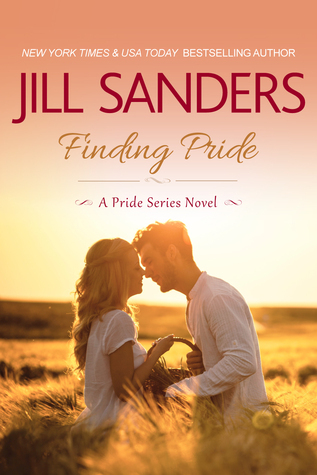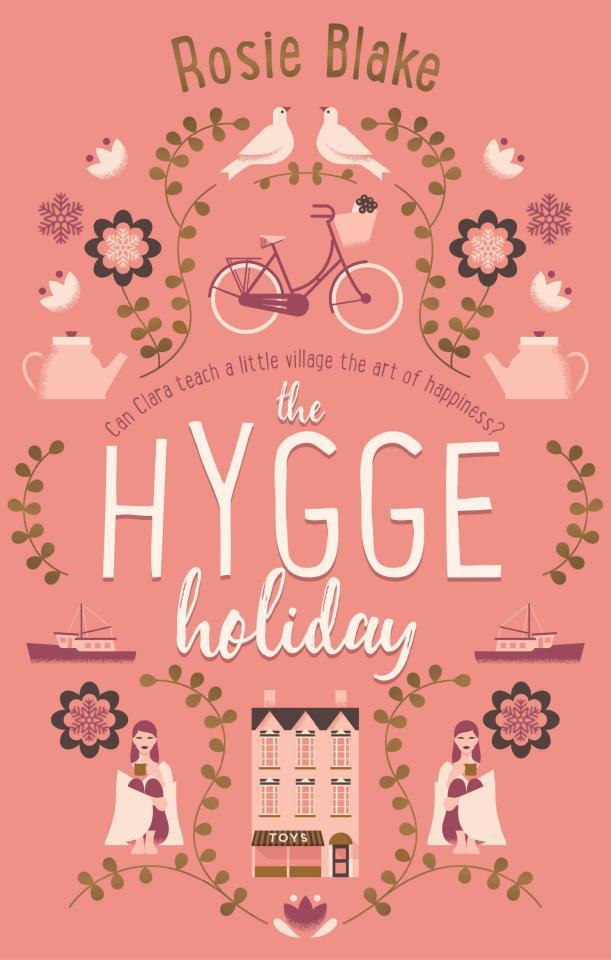I left the last entry in a place of questioning whether treating online dating with the mantra of “dick is abundant and low value,” a term created by Madeleine Holden and further used by Alana Massey, was indeed the best way to treat online dating. I still don’t have the answer to that, and could probably be debated until we are blue in the face. But I do want to continue talking about Rebecca Traister’s “All the Single Ladies, Unmarried Women and the Rise of an Independent Nation.”
Let’s get into the notion of marriage. I would say about ten years ago that was all I wanted. I was even in a five year relationship that, had he asked me, I would have said yes (thank god he never did, as I would surely be in one of two circumstances now: divorced, or in a miserable marriage). Something shifted for me. It’s probably a confluence of things…the five year relationship was gut wrenchingly hard to recover from, I then spent a year or so dating the same type of person – clearly taking the slow route to observing the poor choices in men I was making – then I spent a significant amount of time not dating at all because I was just so over it and couldn’t be bothered with any of it, to then embarking on the online dating world. The online dating world is like seeing a piece of cake and knowing that it won’t be good for you, but it will be satisfying at the time, then choosing to go for it and indulge, only to feel sick after the fact. SO, I started to think that if that path isn’t meant for me then that’s OK. I had to tell myself that I can still have everything else if I don’t get married. I could even still be in a healthy and committed relationship – better than most marriages – without a wedding ring and piece of paper.
So, when reading Traister’s book, it made me realize that I’m not alone in these thoughts and feelings. According to Traister, “Cohabitating couples in Sweden are less likely than Americans to break up, and as sociologist Andrew Cherlin has pointed out, a child living with an unmarried pair of parents in Sweden, ‘has a lower chance that his family will disrupt than does an American kid living with married parents.'” That’s it, I’m moving to Sweden (kidding, kind of).
According to Traister, “In part, when we delay marriage, it’s not just women who become independent. It’s also men who, like women, learn to clothe and feed themselves, to clean their homes and iron their shirts and pack their own suitcases.” I once had a guy tell me to pick out his clothes for a night out with some friends. We didn’t last much longer after that (and don’t get me wrong, that wasn’t the only reason – BUT I knew he wasn’t asking me to pick out his clothes because of my good sense of style, it was because he didn’t want to be torn away from his video game – this was when I was still making the same bad decisions in men and hadn’t learned my lesson yet). But, here’s the thing, and something that Traister points out so poignantly, “Our old partners don’t cease to matter or to exist in our memories or in our makeup just because we don’t marry them.” Journalist Jen Doll summed it up in her Village Voice piece on single women in New York: “The man who introduced you to really good bourbon; the guy with kids who helped you remember why you do, or don’t want them for yourself; the bisexual coworker; the “poonhound;” the one that got away; and the one you let get away on purpose – they all have a place in your dating life. Don’t regret them.” And, that’s just it. I don’t regret any of them, the good, the bad, or the ugly (believe there were a couple of those…). What I take away from this part of the book is that you learn something from everyone you date, and you don’t have to settle and marry a single one of them if you don’t want to.
One of the my favorite parts of Traister’s book is when she discusses Gloria Steinem. “Steinem was sixty-six, the feminist leader who said that she didn’t want to marry because she couldn’t mate in captivity, who said, ‘we are becoming the men we wanted to marry,’ who once called marriage a union of one-and-a-half people and ran away from her collegiate fiance, got married. As Steinem tells the story of her long single life before David Bale, ‘I had realized at about the time that feminism entered my life that a. I didn’t have to be married,’ and ‘people (even women) could choose different lives and b. I couldn’t marry anyway because I would be giving up my civil rights (credit rating, legal residence, name etc. etc.'” Here is the thing, even Steinem eventually got married – despite the criticism she faced upon doing so. So, if it feels right then do it! But if there is any hesitation or uncertainty, don’t marry someone just because “it’s time,” or “we’ve been together for two years,” or “I’m almost thirty-five, it’s either now or never.” STOP! These are the worst reasons to get married. My brother and sister-in-law have been together for over a decade, they have two children together, and just got married this past September. They definitely didn’t jump into anything, and didn’t let any outside pressure make them marry sooner than they felt necessary.
So, let’s think about this, and try not to go down too morbid of a road, but women out-live men. So, when we finally do make the decision to marry, we will inevitably probably find ourselves alone again toward the later part of our lives. According to Traister, “The average age of widowhood for women in the United States is around fifty-nine, and 2009 figures showed that over 50 percent of women over seventy were widowed, more than double the percentage of men who are widowers. For the happiest wives, that means both suffering through the passing of our beloved and then, once again, facing the world – and our own ends – on our own.” By the way, that’s exactly what happened to Steinem. She was single for sixty-six years, finally married, only to see her husband through cancer and find herself single, yet again. So, is it really worth it then?
Of course it is! That’s the tiny percentage of hopeless romantic that lives within me. It’s worth it if you really truly love each other and if it’s the right person. See, I have a heart? *wink, wink* But in all seriousness there was a Newsweek article published that highlighted researchers who asserted that, “an unmarried thirty-year-old, college-educated woman had a 20 percent chance of marriage and, by forty, no more than 2.6 percent shot.” According to Traister, this was “part of a panicky news cycle catalogued scrupulously by journalist Susan Faludi in her 1991 best-seller, Backlash, in which the message sent to independent women was that they faced a purported shortage of men to marry.” I read Backlash when I was in college taking a women’s studies class, and I have to say I don’t remember much from the book and should probably revisit it. With that said, I looked it up to remind myself about the context of the book.
Susan Faludi’s 1991 book Backlash: The Undeclared War Against American Women argued that the 1980s saw a backlash against feminism, especially due to the spread of negative stereotypes against career-minded women. The book has become a classic feminist text, warning women of every generation that the gains of feminism should not be taken for granted. Faludi argues for the existence of a media driven “backlash” against the feminist advances in the 1970s, and argues that many of these problems are illusory, constructed by the media without reliable evidence – hence the Newsweek article that Traister mentions in her book, “The message that high-achieving women will be punished by spinsterhood has not abated in the past three decades, despite the evidence that high-achieving women are increasingly most likely to marry.”
Here’s the bottom line, contemporary women are redefining when women get married which also naturally bleeds into how contemporary women are also redefining whether, when, and how they become mothers. According to to Traister, “easy alternatives to the cold equations of child-bearing are not plentiful. Here is the math: there are a limited number of years during which most women’s bodies can easily bear children.” Back in the day, most women got married and started families in their late teens and early twenties so the window of reproductive opportunity matched the window of marital expectation. However, those windows no longer overlap as neatly as they once did.
One would think that this would just be a natural progression that we all accept and understand. There are lots of factors that create this delay in marriage and having children (women attending college and wanting to establish their career first, waiting to find the right person as opposed to settling, saving to buy a house – which in some states is almost impossible eh em…California). However, society still thinks that if you aren’t having kids by thirty, you’re now on a time clock that is ticking very LOUDLY. But here are some statistics for you, taken from Traister’s book: The average age of first motherhood in the United States shot from 21.4 in 1970 to 26 in 2013. More than four in ten births in 2010 were to women over the age of thirty, and one in seven was to women over thirty-five. More than that: of first births, eight percent in 2009 were to women over thirty-five, compared to just on percent in 1970. This is the one that makes me feel better, the number of women giving birth after age thirty-five rose by 64 percent between just 1990 and 2008. So, here is my question – why the heck is there so much pressure from society to hurry up and have kids sooner rather than later?
“The postponement of parenthood has brought its own set of challenges and peculiarities, among them the likelihood that if you are an unmarried woman over the age of twenty-four, you’ve read, heard, or been told something that has made you quite certain that your ovaries are withering, and your eggs are going bad. Right now. This second. As you’re reading this and still not doing anything about getting pregnant.” Yup! I’ve heard almost that exact thing, “your eggs are dying.” But, according to Traister, “It is a testament to how committed professional women were to the new kinds of lives they were living, that the terrifying threats of egg decline did not set off a wave of early marriage and dramatically lower the age of first birth.” Maybe single women didn’t want to listen to the warnings, and more than likely even if these warnings provoke anxiety within women, there really isn’t much they can do about it. It’s not like being single is, according the Traiser, “some outfit you could simply change out of when someone pointed out that it wasn’t keeping you warm enough; the husband-free existences women were living couldn’t change course with a snap of the fingers. These were lives. What were they going to do?”
In a part of the book that has become my favorite, and prompted me to look up the clip, is when Traister shares a Saturday Night Live sketch from 2002 where Sylvia Hewlett, who is an economist, consultant, lecturer, and expert on gender and workplace issues, and the media tell career women to have babies sooner in life. In the weekend update. It goes something like this:
Tina Fey: “According to Sylvia Hewlett, career women shouldn’t wait to have babies, because our fertility takes a steep drop-off after age twenty-seven. And Sylvia’s right. I definitely should have had a baby when I was twenty-seven, living in Chicago over a biker bar, pulling down a cool $12,000 a year. That would have worked out great.”
Rachel Dratch: “Yeah, Sylvia. Thanks for reminding me that I have to hurry up and have a baby. Uh, me and my four cats will get right on that.”
Maya Rudolph: “Yeah, Sylvia, maybe your next book should tell men our age to stop playing Grand Theft Auto III and holding out for the chick from Alias.”
Amy Poehler: “My neighbor has this adorable, cute little Chinese baby that speaks Italian…so, you know, I’ll just buy one of those.”
According to Traister, “At the time of this sketch, none of these four comedians had children. Today…they have nine between them, all but one born after they were thirty-five.” This clip is from 2002 – fifteen years ago! And here we are, still dealing with the same criticisms and pressure.
So, what do you do if you want to have children but probably won’t get to it until you’re in your mid-to late-thirties? Well, there’s always freezing your eggs. According to Traister, “Sarah Richards reported in the Wall Street Journal in 2013 that the age of egg-freezing candidates ‘is slowly coming down,’ one study of the 240 women showed that the average age of women who got fertility consultations at a reproductive organization in New York between 2005 and 2011 dropped from thirty-nine to thirty-seven, and, Richard writes, ‘Several doctors say they are seeing a trickle of women under thirty-five – the turning point when a woman’s fertility goes downhill and she is labeled ‘advanced maternal age’ on medical charts.'” It’s an option, though not a cheap one. I did some quick research for this blog entry, and the cost of medication associated with retrieving eggs for one cycle is roughly $10,000-12,000 and storing eggs will cost about $800 per year. But, freezing eggs may save thousands of dollars in fertility treatment down the road and offers immediate peace of mind. So, there’s that…
I can’t help but wonder though, when society’s unrealistic outlook on the appropriate age of motherhood will shift. It’s happening, albeit slowly. According to Traister, “During the election cycles in the early part of the twenty-first century, much attention was paid, by both Democrats and Republicans, to single female voters, largely because of the dawning realization that they wield enormous electoral power. In 2012, Barack Obama’s campaign released a bit of campaign propaganda that featured a cartoon character woman named Julia. It illustrated how Julia was born, got a college degree, had a career and a child thanks, in part, to the aid of government sponsored programs. According to Julia’s bare-bones timeline, her life did not include marriage.” OK, so I’m not going to get political on this, nor am I going to embark on “government sponsored programs,” what is important to outline here is that Julia wasn’t shown getting married. Interesting right?
This gives me hope that the status quo is changing. Not just for myself – although it’s a little too late for me – but hopefully for my two nieces. I want my nieces to know that being smart, fostering the want and need to educate themselves and learn about life and relationships before settling down, is an important and normal part of growing up.
Recently, my oldest niece (who is nine), told me that she wanted to be just like me when she grows up. I asked her why and thought for sure she was going to say “because she was going to go to college and get a good job.” Instead, she said she was going to be just like me and not get married or have any kids. This stunned me. I still want those things – whether in that order or not – so I told her just that. I told her that at some point I want to get married and have babies. After talking to her a bit more about it I realized that she was really referencing the want to be like me because I travel and go and do really cool things – and I think she associates having children with impeding on that ability. I told her that’s why you do all the super cool and fun traveling BEFORE you settle down and get married and have kids.
The perception is changing folks, one little girl at a time. This book clearly struck a nerve in me and prompted me to share my perspective and personal stories on the topics Traister wrote about. Putting unnecessary pressure on women about their fertility is completely asinine. As a thirty-something woman, I am completely aware of what putting marriage and pregnancy off means, and it doesn’t scare me. If anything, I will come out on the other side of this with a really awesome, well-traveled and fun life before I decided to settle down, and that folks is what is important.
Check out the book – it’s worth the read!






